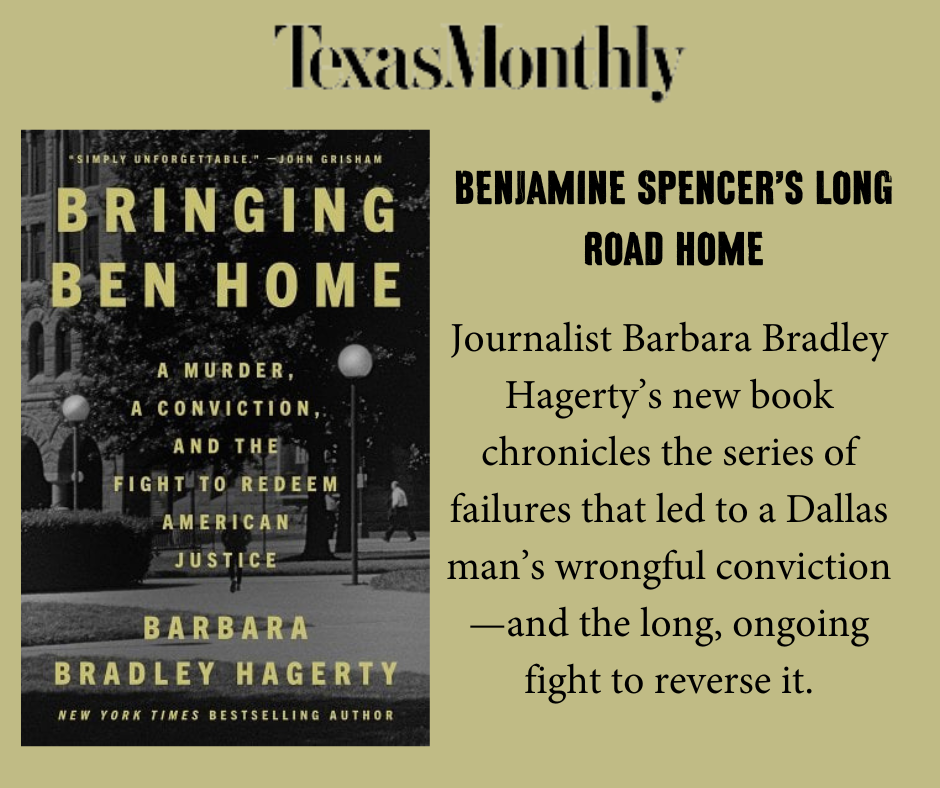
Written By John Grisham
Published on August 29, 2021 at 4:00 p.m. EDT
John Grisham is a novelist and retired lawyer.
It is refreshing and inspiring that Virginia Gov. Ralph Northam (D) has recently made use of his singular power to grant absolute pardons to three wrongfully convicted men.
Bobbie Morman Jr., of Norfolk, spent 22 years in prison though an innocent man. Joey Carter, also of Norfolk, spent 25 years in prison for a crime he didn’t commit. Emerson Stevens, of Lancaster County, served 32 years for a murder committed by someone else. That someone has never been caught because police framed the wrong man.
Pardons and exonerations are bittersweet. On the one hand, the years of hard work by innocence lawyers ultimately pay off, and some measure of justice is found as the wrongfully convicted finally make their dramatic walk out of the prison gates. On the other hand, it is infuriating that our criminal justice system is so broken that bogus convictions happen at all. Innocent lives are destroyed. The guilty roam free. And the police and prosecutors are almost never made to answer for their bad behavior. If the authorities played by the rules, virtually all wrongful convictions could be avoided.
In Carter’s case, an infamous rogue cop in Norfolk forced an eyewitness to change her testimony. In granting his pardon, Northam wrote: “Mr. Carter was an unfortunate victim of Norfolk Detective Glenn Ford, who used his official capacity to extort witnesses in order to yield high solvability percentages and was eventually convicted on federal charges.” (The federal charges were unrelated to the innocence cases.)
DNA test results also excluded Carter from committing the crime, but the prosecutor ignored this and pressed for a trial. He convinced a jury and got a conviction.
Morman was charged with attempted malicious wounding. The real gunman came forward before the trial and confessed. The prosecutor didn’t believe him, nor did the jury, and Morman went to prison.
Stevens was a hard-working oysterman from the Eastern Shore. He was accused of a murder he knew nothing about. At trial, his defense lawyers faced a barrage of the factors that usually cause wrongful convictions: perjured witnesses, junk science, police misconduct and a prosecutor who was later found to have concealed a trove of exculpatory evidence.
In granting his pardon, Northam noted that “in [federal] Judge Stephanie Thacker’s concurring opinion, she stated that the evidence as a whole overwhelmingly supports a conclusion that no reasonable jury would have convicted [Mr.] Stevens.”
Notwithstanding Northam’s courageous actions, the commonwealth can take no satisfaction in the pardons. In fact, the commonwealth was complicit in causing and perpetuating the wrongful convictions. From the incompetence of its investigators to the misconduct of its prosecutors, Virginia’s criminal justice system broke down along the usual fault lines. And the injustice was compounded by the years of hardball litigation required to uphold them. After the trials, the cases were handed off to the attorney general, who, by law, was required to fight the appeals filed by the wrongfully convicted. The appellate wars dragged on for decades.
It is not the role of the federal courts, or even the governor, to clean up Virginia’s mistakes. The commonwealth should fall in line with other progressive states and adopt measures aimed at preventing wrongful convictions. These include: abolishing, or at least strictly monitoring, the testimony of jailhouse snitches; video recording the police during interrogations and prohibiting the use of deception, at least to minors; requiring expert testimony to be based on established science; establishing fair guidelines for police lineups and identifications; and removing the broad immunities that police and prosecutors now enjoy, and holding them accountable for when they engage in misconduct.
Virginia, and every other state, could also benefit from the work of pro bono lawyers dedicated to fighting injustice. All three of these men were represented by the Innocence Project at the University of Virginia School of Law. Its volunteers thoroughly investigated and researched their cases before filing appeals, then litigated toe-to-toe for years with the attorney general’s office.
Instead of trying to thwart the innocence lawyers at every turn, why can’t the commonwealth work with them to find the truth?
For Bobbie Morman, Joey Carter, and Emerson Stevens, the truth was finally revealed, but not because of any assistance from the commonwealth.
They are exonerated because of Gov. Northam, who, like his predecessor, has been unafraid to use his power to pardon those who deserve it.
The best-selling crime novelist sits on the board of the Innocence Project, and believes our country should be doing more to prevent wrongful convictions.
Also listen to the audio podcast John Grisham wants to keep innocent people out of prison






